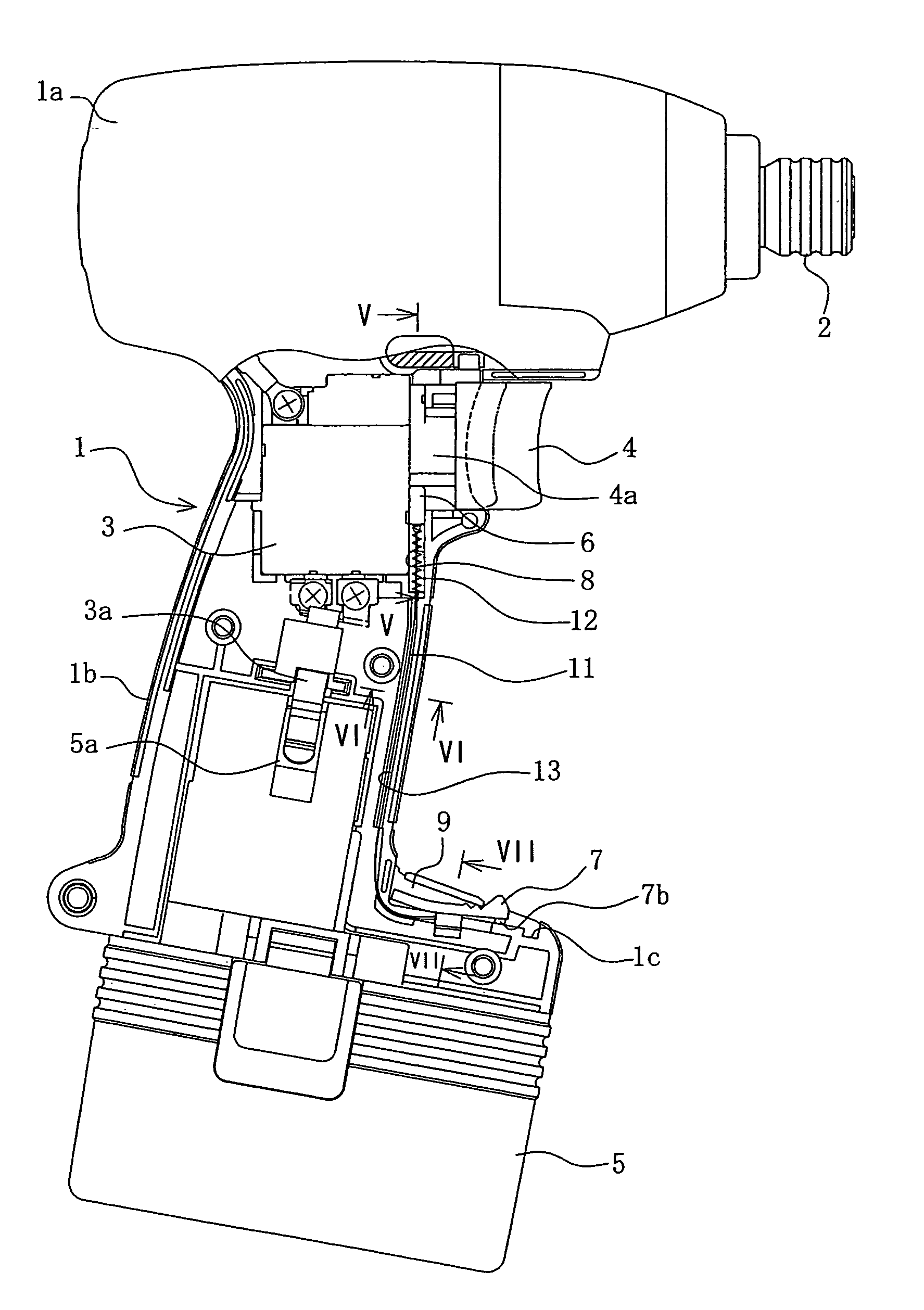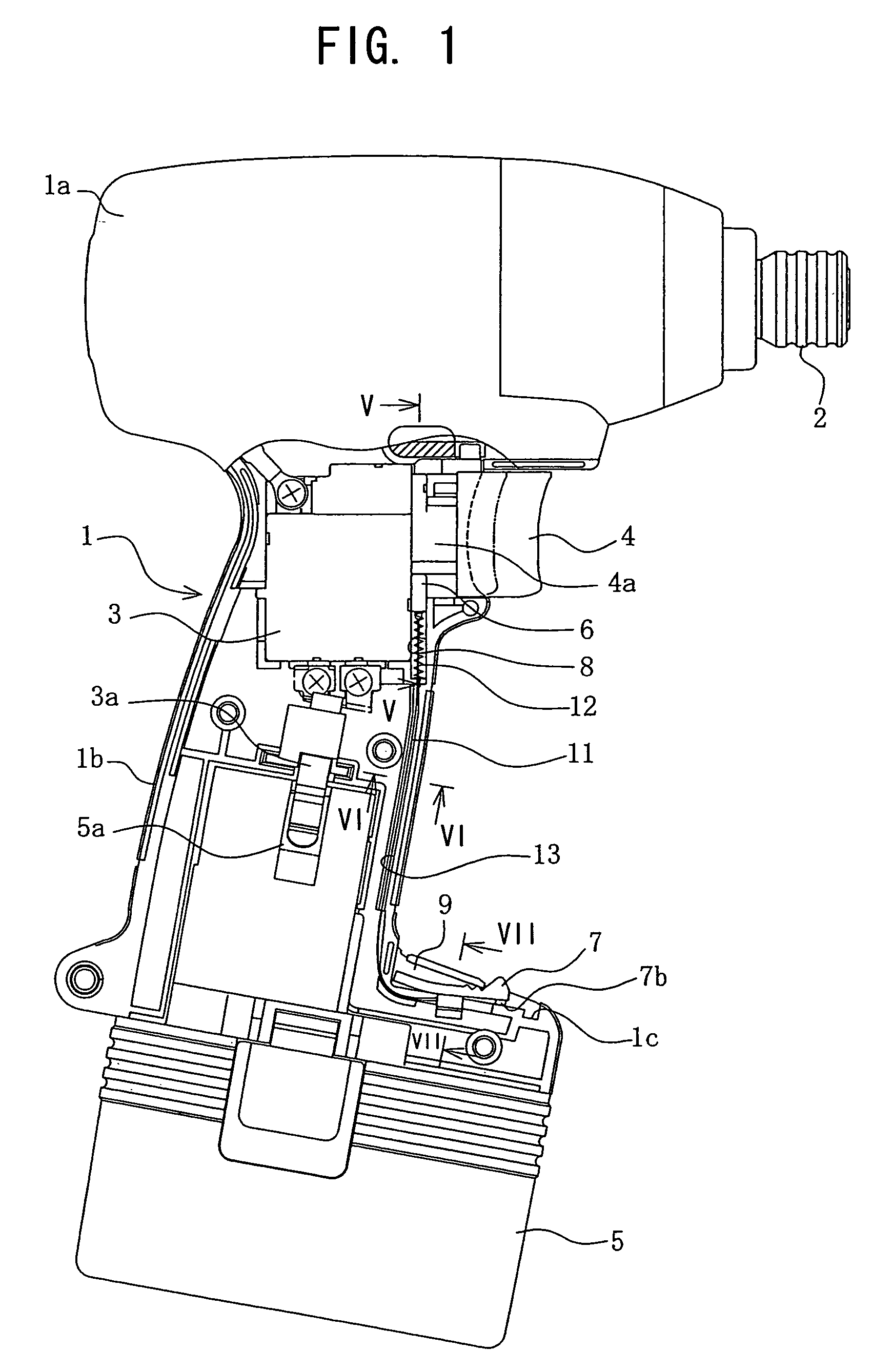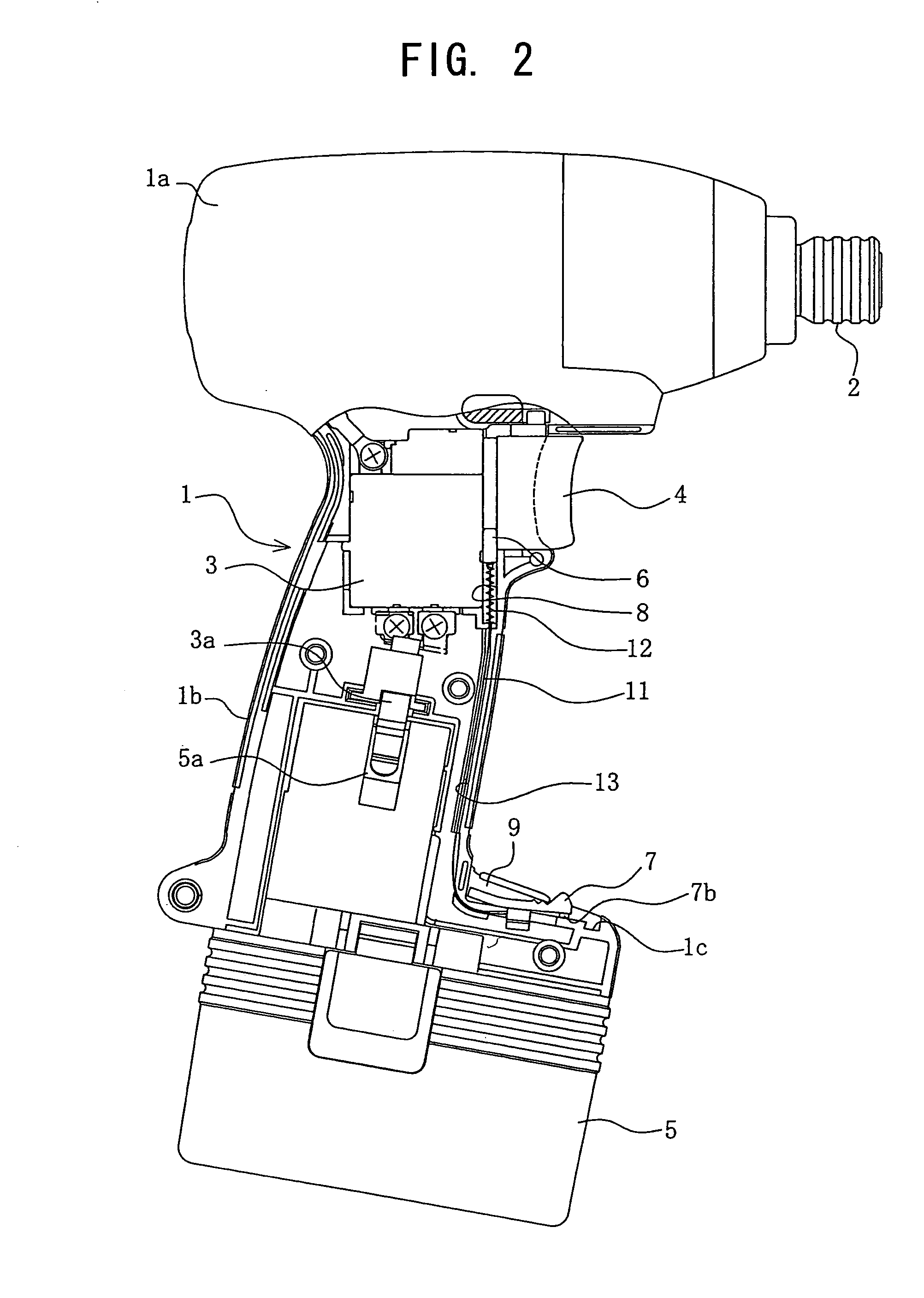Electric power tool
a technology of electric power tools and power shafts, applied in the field of electric power tools, can solve the problems of change in the number of revolutions of the output shaft, and achieve the effects of avoiding a complicated housing structure, low torque range, and low torque rang
- Summary
- Abstract
- Description
- Claims
- Application Information
AI Technical Summary
Benefits of technology
Problems solved by technology
Method used
Image
Examples
Embodiment Construction
[0030]Now, embodiments of an electric power tool of the present invention will be described in detail below with reference to the accompanying drawings.
[0031]As shown in FIGS. 1 to 4, the electric power tool of the present invention is constructed as an impact driver. The impact driver has a fundamental structure including a housing 1, an electric power unit (not shown), a trigger 4, a trigger-limitation device 6 and a switching device 7.
[0032]More specifically, the impact driver has a housing 1, which is composed of a pair of half portions. The half portions of the housing 1 have abutting edges, respectively, which are to be brought into contact with each other on a plane that is in parallel with a drawing sheet. Such half portions are assembled into the housing 1 so that the abutting edges come into contact with each other on the above-mentioned plane. The half portions of the housing 1 are provided on their abutting edges at the front side of the housing 1 with grooves. Assemblin...
PUM
 Login to View More
Login to View More Abstract
Description
Claims
Application Information
 Login to View More
Login to View More - R&D
- Intellectual Property
- Life Sciences
- Materials
- Tech Scout
- Unparalleled Data Quality
- Higher Quality Content
- 60% Fewer Hallucinations
Browse by: Latest US Patents, China's latest patents, Technical Efficacy Thesaurus, Application Domain, Technology Topic, Popular Technical Reports.
© 2025 PatSnap. All rights reserved.Legal|Privacy policy|Modern Slavery Act Transparency Statement|Sitemap|About US| Contact US: help@patsnap.com



